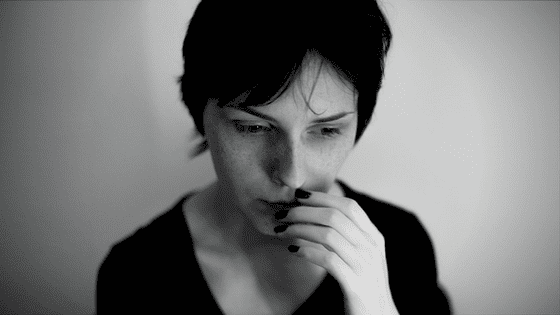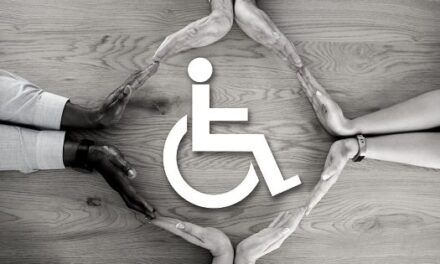From public speaking or dating we all feel fear, its what you do about it that counts.
Fear stops us from achieving the things that we want to achieve in life, from being the person that we want to be, doing the things that are important to us and saying the things we need to say. Fears is so deeply ingrained into parts of our lives that we have blind spots, areas of our lives where we are inhibited but we don’t realise it or know why. Knowing that we are scared and want to overcome it is not enough, we need to to something, but what? Fear and anxiety are intimately linked, anxiety is an indicator of our hidden fears. By looking directly at our fear and anxiety rather than letting them be the hounds that we blindly run from can free us.

I often work with clients experiencing performance anxiety, the physical and mental state where one is inhibited by a dissonance within themselves, often without awareness of its origins. At the heart of the anxiety is fear, fear of failure, fear of success, fear of making a fool of themselves. These fears stem from an expectation that unless we can deliver perfection we will in some way have failed. So often the expectation that we need to deliver perfection stops us from ever starting, we sabotage ourselves through self criticism that leads to procrastination and robs us of the self affirmation gained from getting the job done. Many elements of our lives require us to perform so this anxiety hounds people from all professions and walks of life, Artists and students to Step-mums, Salespeople, Politicians, Lawyers and CEO’s. It manifests itself in many ways, from procrastination and excuses to mind blanks and panic attacks.
Few know that the adage “The only thing we have to fear is Fear itself …” is an excerpt from a speech given by Franklin D. Roosevelt during the depths of the depression in 1933 where he went on to say
“…nameless, unreasoning, unjustified terror which paralyzes needed efforts to convert retreat into advance…our distress comes from no failure of substance. We are stricken by no plague of locusts. Compared with the perils which our forefathers conquered because they believed and were not afraid, we have still much to be thankful for.”
In other words, we should be concerned not with our feelings of fear but our relationship with fear and how we choose to behave and what attitudes we give credence to in the face of fear. When we see fear as an obstacle, an insurmountable odd, it steals our focus from the our greater goals and what we are capable of and often drives us to behave in ways that are to our detriment.
Own it
Fear serves an important role in our lives, it stops us from stepping in front of buses or elephants and making bad life decisions or getting ill-advised tattoos, but we need to keep our fear in perspective. Fear need not be insurmountable, a blocker, the end of the line. If we allow ourselves to feel the fear without recrimination, step back from the fear and objectively acknowledge it as part of the process, part of being human, then choose to carry on despite it, we provide ourselves with an opportunity to overcome those fears. The time spent indulging our fear, and procrastinating is time that could be used to rehearse, practice, prepare, build yourself up, so that when it is time to perform we are giving ourselves the best possible chance to succeed.
If we allow ourselves to feel the fear without recrimination, step back and objectively acknowledge it as part of the process, part of being human, then choose to carry on despite it, we provide ourselves with an opportunity to overcome those fears.
Use it
Use fear as a motivational tool. Look into the abyss of what life would be like if the things that you are scared of actually happened then use that as a motivator to make a strategy to avoid the thing you fear and make daily choices in the now that move you towards a more healthy, positive, fulfilling future.
Notice that fear and excitement have the same fundamental effect on the body, raised blood pressure, release of adrenalin, hyper-focus. Alison Wood Brooks (Harvard Business School, Get Excited: Reappraising Pre-Performance Anxiety as Excitement) surveyed a number of studies and observed that people that were able to perceive anxiety responses as excitement were substantially more effective than those who attempted to ‘calm down’, perceiving the anxiety sensations as fear. Those who affirmed to themselves that the performance was something to be looked forward to rather than endured, through self affirmations and positive self talk prior to a challenge, approached the challenge with a more positive mind set and so achieved consistently greater results.
Move past it
Confirmation bias is when we find reasons to confirm a preconceived idea that we consciously or unconsciously have. It blinds us from seeing alternative explanations, robbing us of an opportunity to see the bigger picture. One powerful way to move past fear is to challenge our confirmation bias. When you feel fear, take a moment to reflect on if you truly have something to fear in that moment or is the fear a deeply ingrained response that originated elsewhere. For example, feeling fear when giving a work presentation may be a result of your brain paralleling the experience with a traumatic instance from childhood when a presentation at school went badly and you felt humiliated. When challenging your fear you can understand that it is not the same, you are now competent and in professional environment. If the fear is left unchallenged the fear of humiliation and failure can become a self fulfilling prophesy where the adrenalin overwhelms and flusters instead of being harnessed to give a powerful performance.
Life Coach and Psychologist Dr Lisa Marie Bobby (The Love, Happiness & Success podcast, “When to not obey your feelings”) noted that acting on “Feelings that are rooted in depression, anxiety, low self esteem, trauma or impulsivity…will almost invariably experience negative consequences…our feelings always feel true, no matter if they are “healthy” or “unhealthy.” It’s therefore very difficult to differentiate between feelings that we should respect and obey, or feelings that we should over-ride.” When choosing whether or not to follow where your feelings lead, first look at the outcome of where they lead you, then choose actions that align with what is important in your life that will lead you on that path.
See fear as part of the process rather than something to be battled against. Once you have acknowledged your fear and seen that it can be used for your benefit you are able to shift your focus on to more aspirational goals rather than being paralysed by fear. By looking at where you are going rather than where you are stuck you are able to move on. If you wait until you are perfect to make a move, you will be waiting forever.
The solution to fear and the havoc it wreaks on our lives is in challenging our perceptions of fears’ role in our lives and so amending our personal relationship to it.There is a Sherlock Holmes quote that changed the way I felt about fear forever. “Fear is wisdom in the face of danger, it is nothing to be ashamed of”. Reframing our perception of fear enables us to use it to our advantage rather than see is is an obstacle. When we recognise that fear serves a purpose we can then break an insurmountable obstacle into something that is part of our journey, something to learn from, a force of motivation that we can incorporate into our progressive journey one step at a time.
When addressing perfectionism, or fear of failure with my clients I often use the example of Technology giant Apple. When they release a new Iphone there are inevitably flaws in the product, bugs and little things that will need tweaking but they don’t wait until the product is 100% perfect to release it, they’ve developed the product to a standard that is good enough for 294 million people world wide to use a phone running Apple’s iOS by the end of 2015. The less than perfect product standard does not stop us buying and appreciating the technology. I find it unlikely that the good people at Apple go home and cry into their pillows because the newly released piece of tech has a bug, they just get on with making a better product for the next release. It will never be perfect but it is definitely good enough. It’s not bravery if you’re are not scared.




















